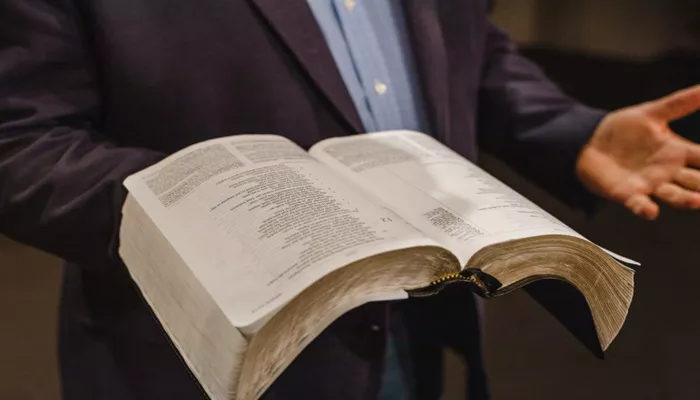Christmas is celebrated globally, but have you ever wondered where it all began? The origins of Christmas as a festive celebration can be traced back to ancient times, with a rich history that encompasses both religious and cultural traditions. This article delves into the first place to celebrate Christmas, examining its roots, the evolution of its customs, and its significance in the context of the modern world.
The Origins of Christmas
Ancient Pagan Festivals
Before the advent of Christianity, many ancient cultures celebrated winter solstice festivals. These festivities marked the shortest day of the year and the gradual return of longer daylight hours. The Romans celebrated Saturnalia, honoring the god Saturn with feasting, gift-giving, and merrymaking. Similarly, in Northern Europe, the Yule festival was observed with similar revelry.
Birth of Jesus Christ
The most widely accepted origin of Christmas is the celebration of the birth of Jesus Christ. According to Christian tradition, Jesus was born in Bethlehem over 2,000 years ago. While the exact date of His birth is unknown, December 25th was chosen by the early church to coincide with existing pagan festivals, making it easier to convert pagans to Christianity.
The First Recorded Christmas Celebration
Early Christian Communities
The earliest recorded celebration of Christmas took place in Rome in 336 AD. During this period, Christianity was gaining prominence under Emperor Constantine, who had converted to Christianity. The Roman Church declared December 25th as the official date to celebrate the birth of Jesus Christ. This decision was strategic, aligning the new Christian holiday with the popular pagan festival of Saturnalia.
The Role of Emperor Constantine
Constantine played a crucial role in the establishment of Christmas as a significant Christian holiday. His support for Christianity and the integration of Christian and pagan traditions helped to spread the celebration of Christmas throughout the Roman Empire. By adopting December 25th, the church was able to incorporate existing traditions and make the new holiday more palatable to the general populace.
Christmas in Bethlehem
The Birthplace of Jesus
Bethlehem, located in modern-day Palestine, is recognized as the birthplace of Jesus Christ. According to the Gospels of Matthew and Luke, Mary and Joseph traveled to Bethlehem, where Jesus was born in a manger because there was no room at the inn. This humble setting has made Bethlehem a central focus of Christmas celebrations and pilgrimage for Christians worldwide.
The Church of the Nativity
The Church of the Nativity in Bethlehem is one of the oldest continuously operating churches in the world. Built in the 4th century by Emperor Constantine’s mother, Helena, it marks the traditional site of Jesus’ birth. Every year, thousands of pilgrims visit the church to commemorate Christmas, participating in midnight mass and other religious ceremonies.
see also: True Meaning of Christmas: A Devotional Exploration
The Spread of Christmas Traditions
The Role of Missionaries
As Christianity spread beyond the Roman Empire, missionaries played a significant role in introducing Christmas to new regions. They adapted local customs and traditions, incorporating them into the celebration of Christmas. This blending of cultures helped to create a diverse and rich tapestry of Christmas traditions around the world.
Medieval Europe
During the Middle Ages, Christmas celebrations became more elaborate. The period leading up to Christmas, known as Advent, was marked by fasting, prayer, and preparation. Feasts, music, and performances became integral parts of the holiday. In many European countries, the tradition of the Christmas tree, caroling, and nativity plays began to take shape.
Modern Christmas Celebrations
Global Festivities
Today, Christmas is celebrated in various ways across the globe. While the religious significance remains central for many, the holiday has also evolved into a cultural and commercial phenomenon. Traditions such as gift-giving, decorating Christmas trees, and sharing festive meals are enjoyed by people of different faiths and backgrounds.
Christmas in the United States
In the United States, Christmas is a major holiday celebrated with great enthusiasm. The influence of various immigrant groups has contributed to a diverse array of customs, from the German Christmas tree to the Italian Feast of the Seven Fishes. The commercialization of Christmas has also led to the creation of beloved traditions, such as Santa Claus and holiday movies.
Christmas in the United Kingdom
In the United Kingdom, Christmas is celebrated with a mix of religious and secular traditions. Carol singing, attending midnight mass, and enjoying a Christmas dinner with turkey and pudding are common practices. The British also observe Boxing Day on December 26th, a day traditionally dedicated to giving gifts to servants and those in need.
Conclusion
The first place to celebrate Christmas can be traced back to ancient Rome, where the early Christian community established December 25th as the official date for the holiday. Bethlehem, the birthplace of Jesus Christ, holds a special significance as the focal point of Christmas celebrations. Over the centuries, Christmas has evolved, incorporating various cultural traditions and spreading across the globe. Today, it is a time for joy, reflection, and unity, celebrated by millions of people in diverse and unique ways.
By understanding the origins and evolution of Christmas, we gain a deeper appreciation for this beloved holiday. Whether celebrated as a religious occasion or a cultural festivity, Christmas continues to bring people together, fostering a spirit of love, generosity, and goodwill.

